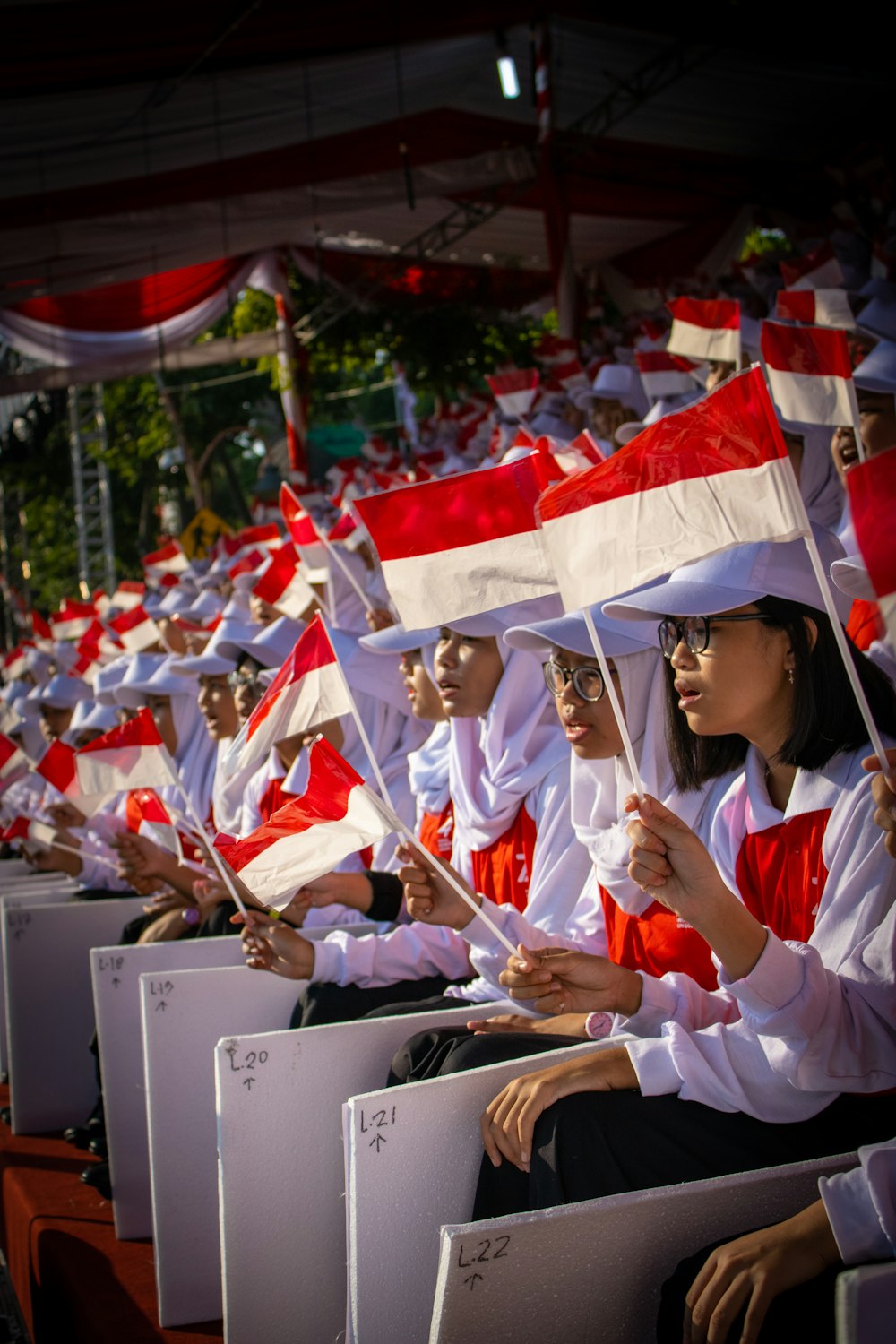Indonesia’s unfinished business

Acknowledgements of Aboriginal land as preludes to formal events are now rarely contested, a belated acceptance that Australia has a bloody history that needs to be publicly discussed as a move towards reconciliation. Indonesia also has a grim past, but still shies from recognition – and healing.
August 17 is our neighbour’s Independence Day and the jingoism is over-the-top now pandemic restrictions have been binned.
There’s not a kampong, village or town which isn’t already so bedecked with red and white banners and bunting that buildings and trees can’t be seen. Triumphal archways make streetscapes look like sets from Aida.
The joy started in July and won’t fade till this month is done and dusted. The big show should have been the 2020 semi-sesquicentennial marking the 1945 declaration of independence from Dutch colonialism and Japanese occupation. Then Covid hit.
A bit of background to help the gory jigsaw pieces fit.
Two days after Japan surrendered in the Pacific War the revolutionary leader Soekarno proclaimed Merdeka (freedom); his edict was yawned away by the returning Dutch confident the natives still loved white-skinned rulers.
They didn’t: A four-year guerilla war followed till Western pressure forced the colonialists to quit in December 1948.
Just as Anzac Day recalls the disastrous landing at Gallipoli in 1915 rather than the 1918 November Armistice, 17 August celebrates the Soekarno statement not the eventual realisation of independence.
Patriots are letting rip. Dressmakers’ have been sewing red-and-white creations, bottle-tops and face masks are bi-colour, and workers are splashing paint onto pillars, posts and walls. Indonesia Raya (Great Indonesia) blares from homes and cars, smothering the roar of motorbikes, though sadly not their pollutants.
The Covid shutdown has given progressive historians the chance to rejig the nation’s story which used to be taught as starting 77 years ago. A few posters of resistance leaders from centuries past are now being displayed.
But there are events more recent and politically volatile which remain off limits.
Soekarno became President and for two decades was almost in bed with the Reds much to the distress of the West and the Indonesian Army. A failed coup on 30 September 1965 when Indonesia had the largest Communist movement outside the USSR and China, led to an outburst of contrived hate which ran for six months.
What happened and why is still contested. Australian translator and academic Dr Max Lane wrote that after an attempt to replace the anti-Communist military leadership, the army launched ‘an extremely violent uprising in which over one million people were killed and tens of thousands imprisoned.’
Real or imagined Communists, trade unionists, teachers, intellectuals and some ethnic Chinese were put to the sword, clubbed to death or shot, their corpses dumped in rivers and swamps. Millions were tortured and jailed while others were denied work.
The official line remains that the killings were spontaneous reactions by outraged pious peasants who hated the godless Marxists and could not be stopped.
Although this myth has now been buried by overseas researchers proving the slaughter was organized by the Army, millions still believe otherwise.
Their credulity is unsurprising. Till recently schoolkids were brainwashed by an obscenely violent 1984 government film, Pengkhianatan G30S/PKI (Treachery of the Communists).
Using official documents Australian academic Dr Jess Melvin has shown the genocide was engineered through the secret police unit Kopkamtib (Komando Operasi Pemulihan Keamanan dan Ketertiban - Operational Command for the Restoration of Security and Order.)
Cracks in the Indonesian government’s disinformation fortress opened after its architect, the late second President Soeharto, yielded to public fury against his mishandling of the 1998 Asian economic crisis. The former general resigned after 32 years of despotic rule – while amassing $32 billion.
After a brief interregnum, in 2000 his successor, religious leader Abdurrahman (Gus Dur) Wahid, publicly apologized for the killings. Though many former military men and some faith groups were outraged by his stance, it was welcomed by victims’ families.
Komnas HAM, (the
National Commission on Human Rights) expected the doors would open wider and
the truth revealed to all. Naive hope. No
one has ever been prosecuted for the killings. Mass graves are still being
uncovered.
During the 2014 presidential election campaign, the winning candidate Joko
(Jokowi) Widodo was not from the military so seemed ready to follow Gus Dur.
Not so: In 2016 Widodo was reported
as stating: ‘One of Indonesian history's
darkest moments will not be revisited …the
government will focus on the future by developing the nation to gain
competitiveness with other countries, not looking back on the country's past.’
Then he attended a public screening of the propaganda film allegedly telling soldiers: ‘Don’t let the PKI (Communist Party) cruelty happen again … if the PKI revives, just beat them up. ’The party is long dead and little wonder. Advocating for Communism can lead to two decades behind bars.
Once a week since January 2007 victims of human rights violations and their supporters (Aksi Kamisan – Thursday Action) protest peacefully outside the State Palace in Jakarta. In 2018 – for the first and last time - Widodo met some of the group in a closed session but nothing happened.
This Wednesday the 77th anniversary of the Proclamation and the Republic’s achievements will not be a gala event for the families of those brutally persecuted by the state last century.
Although their calls for recognition and reconciliation are growing shriller, few are listening. Indonesia’s military and business oligarchs and the descendants of the killers continue to ensure there’s no widespread ventilation of grievances and certainly no sorry business, as the First Australians say.
Despite the hush, the anger, hurt and shame continue to gnaw away at the national psyche.
First published in Pearls & Irritations, 14 August 2022: https://johnmenadue.com/indonesias-unfinished-business/
No comments:
Post a Comment